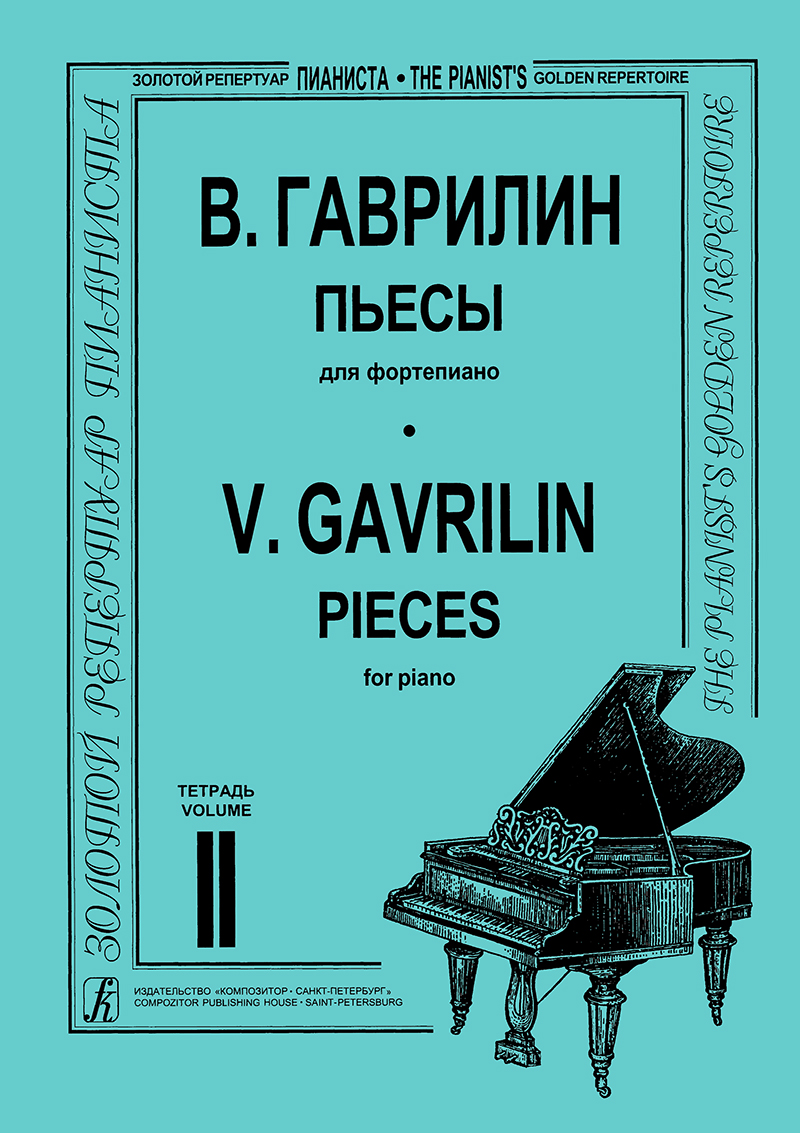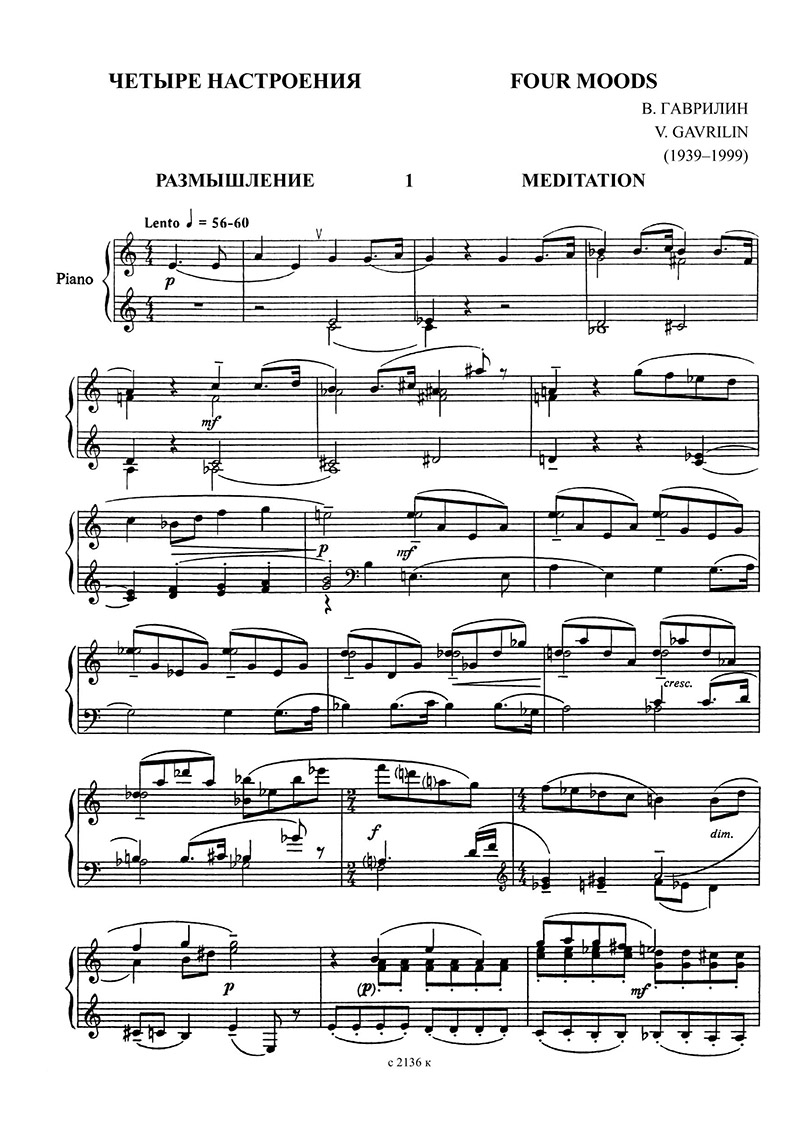
Gavrilin V. Pieces for piano. Vol. 2
- Author:
- Gavrilin V.
- Author (full):
- Valery Gavrilin
- Title (full):
- Pieces for piano. Volume 2 (average and senior forms)
- Number of pages:
- 40
The music by Valery Gavrilin (1936–1999) has long ago and utmostly firmly entered the repertoire of theatres and concert halls. It may be heard in the films of cinema and TV, in radio programmes. Pop stars and serious classical performers include it to their stock.
This music is unpretentious and intricate at the same time. The beginning musician finds the nature, which is so familiar to him in this music, not to mention the easily learnt melody and comfortable facture, quite convenient for the hands. Children are fond of playing Gavrilin. His pieces resemble the kind of game as well.
The grown-ups also enjoy performing and listening to Gavrilin, being attracted by the same spirit of game, as the children are, but not only by this...The grown-ups are drawn by the duality of this game. Even the most unexperienced of them hear the composer’s sly dialogue with the classical patterns. The composer talks to his “predecessors” and this talk is delicate, clear and serious, however, enlighten by his smile.
These are the time, the home, the death, that make this dialogue serious and profound. And the smile is evoked by his memory, reminding of many persons to have been spoken about the same very things, yet going on to live, to die and everything turned out all right.
Gavrilin’s smile is sad — but this is still a smile. Gavrilin’s personages are like the fairy ones, existing either in reality, or in one’s imagination. Gavrilin’s music looks ingenuous and “cosy”, quite easily comprehended. However, quite of a sudden it turns to the grandiouse, mighty and nearly limitless substance, reverting unexpectedly to simplicity and unaffectedness, as if pronouncing with apologetic expression: “take it easy, everything is all right...”
Isn’t it a real tale?
The collection of pieces for piano by Valery Gavrilin is recommended as the kind of a text-book to the pupils of music schools and their teachers.
Contents:
Four Moods
1. Meditation
2. Prelude
3. Sadness
4. March
Five Pieces
1. Lullaby
2. Capriccio
3. Hero's Epitaph
4. Short Poem
5. Toccata
- Author
- Gavrilin V.
- Author (full)
- Valery Gavrilin
- Title (full)
- Pieces for piano. Volume 2 (average and senior forms)
- Number of pages
- 40

